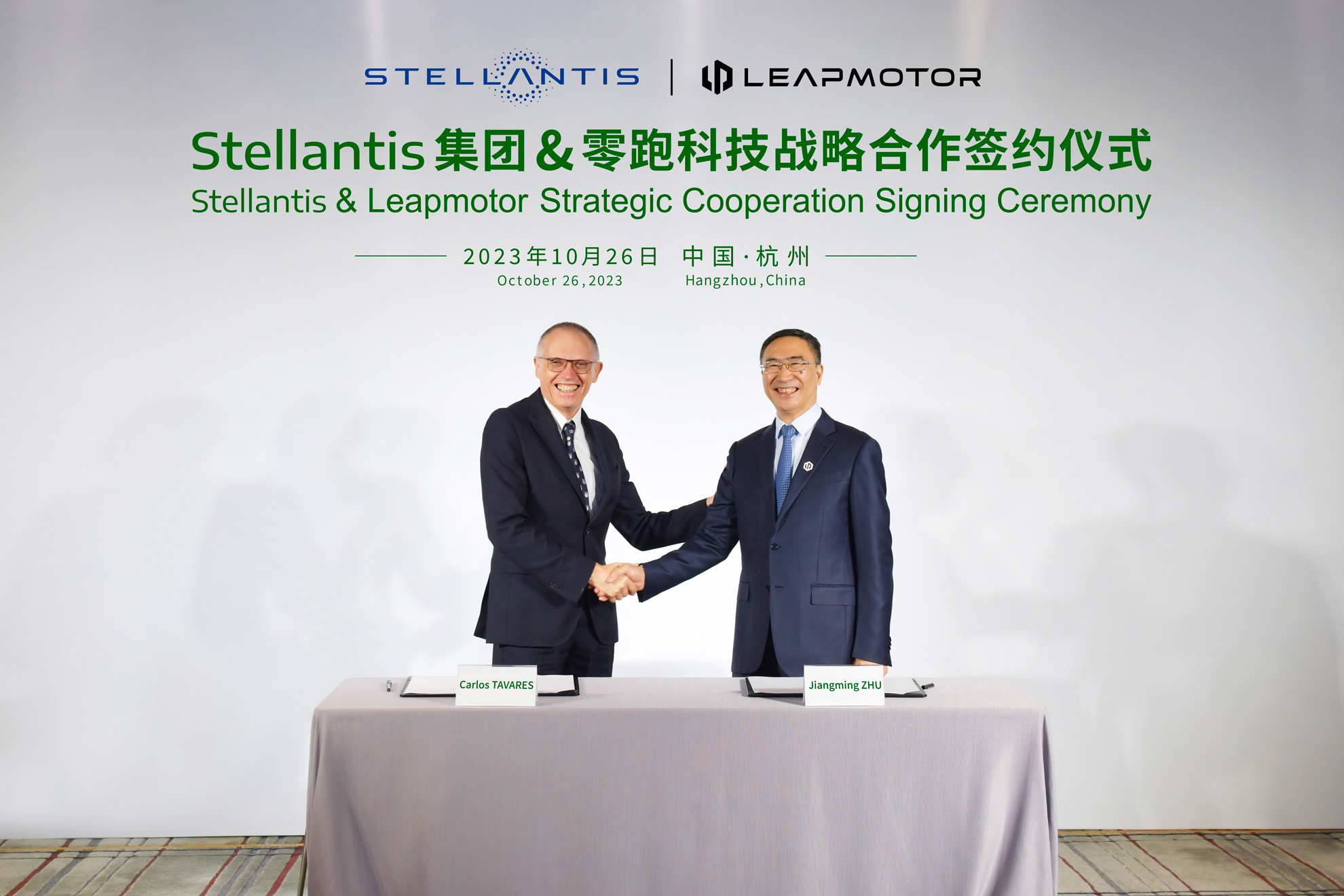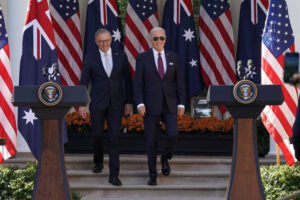Stellantis, the multinational automotive company that owns brands such as Chrysler and Maserati, has announced a significant investment in the Chinese electric vehicle (EV) startup Leapmotor. The €1.5 billion ($1.58 billion) investment is a strategic move by Stellantis to gain a foothold in the highly competitive Chinese EV market, which is currently dominated by domestic companies like BYD and international giants like Tesla.
This substantial investment will result in the formation of the “Leapmotor International” joint venture, with the primary objective of boosting sales of Leapmotor’s electric cars overseas. Stellantis will hold a majority 51% interest in this joint venture, while also securing approximately a 20% equity stake and two board seats in Leapmotor.
China is the world’s largest electric vehicle market, with intense competition arising from domestic startups like Nio, Xpeng, and Li Auto. Additionally, tech giants such as Xiaomi and Huawei have entered the EV sector. The fast-paced nature of the market and the growth of homegrown companies have posed challenges for traditional automakers looking to make their mark in the industry.
Stellantis has faced difficulties in selling cars in China, currently commanding just a 0.3% market share in the country. The investment in Leapmotor aims to address this issue, allowing Stellantis to strengthen its presence in the Chinese market.
Analysts see clear synergies in this partnership. Abhik Mukherjee, an analyst at Counterpoint Research, pointed out, “This deal presents clear synergies for both Stellantis and Leap Motor. Stellantis stands to benefit by strengthening its presence in the Chinese market, while Leap Motor gains an easier entry into the European market.”
Stellantis CEO Carlos Tavares sees the deal as an opportunity to tap into Leapmotor’s technology and manufacturing capabilities, positioning Stellantis for success in the Chinese market. Tavares stated, “Through this strategic investment, we can address a white space in our business model and benefit from Leapmotor’s competitiveness both in China and abroad.”
Leapmotor, like many of China’s EV startups, has positioned itself as a tech-first brand. The company has developed its own semi-autonomous driving system and a unique vehicle architecture. Leapmotor, headquartered in Hangzhou, has three cars currently available for sale and plans to introduce various vehicle styles in the coming years.
The partnership with Stellantis aligns with Leapmotor’s ambition to become a global EV player. The company unveiled its C10 sports utility vehicle at the IAA motor show in Munich, signaling its plans to introduce five “globally-oriented” products across the world in the next two years.
To facilitate overseas expansion, the joint venture with Stellantis has secured exclusive rights for the export, sale, and manufacturing of Leapmotor products outside Greater China, with car shipments set to begin in the second half of 2024.
However, it’s worth noting that deals between traditional automakers and Chinese companies have encountered challenges in the past. Bill Russo, CEO of investment advisory firm Automobility, expressed skepticism, particularly about minority shareholdings like Stellantis’. He cited a previous joint venture between Stellantis and Guangzhou Automobile Company that filed for bankruptcy last year.
Stellantis’ substantial investment in Leapmotor reflects the pressure traditional automakers face from agile Chinese players in the rapidly growing EV market. European automakers and politicians have expressed concerns about the increasing presence of Chinese EV manufacturers in Europe.
To illustrate this point, Volkswagen made a $700 million investment in China’s Xpeng in July, and other Chinese companies, including BYD, have aggressively expanded into Europe. This competition has led the European Commission to investigate subsidies provided to EV manufacturers in China.
Stellantis’ CEO, Carlos Tavares, acknowledged the challenges but also emphasized the potential benefits of collaborating with Chinese companies. He stated, “The Chinese offensive is visible everywhere. With this deal, we can benefit from it rather than being victims of it.” Tavares also defended the partnership, stating that Stellantis is not a “Trojan horse” for Leapmotor into Europe and criticized the European Union’s probe.
This investment marks a pivotal move in the evolving landscape of the global electric vehicle market, as established automakers seek to secure their positions in the face of increasing competition from innovative Chinese players. The success of Stellantis’ partnership with Leapmotor will be closely watched as it unfolds in the coming years.
(Source: Stellantis | Arjun Kharpal | CNBC | Al Root | Barron’s)









